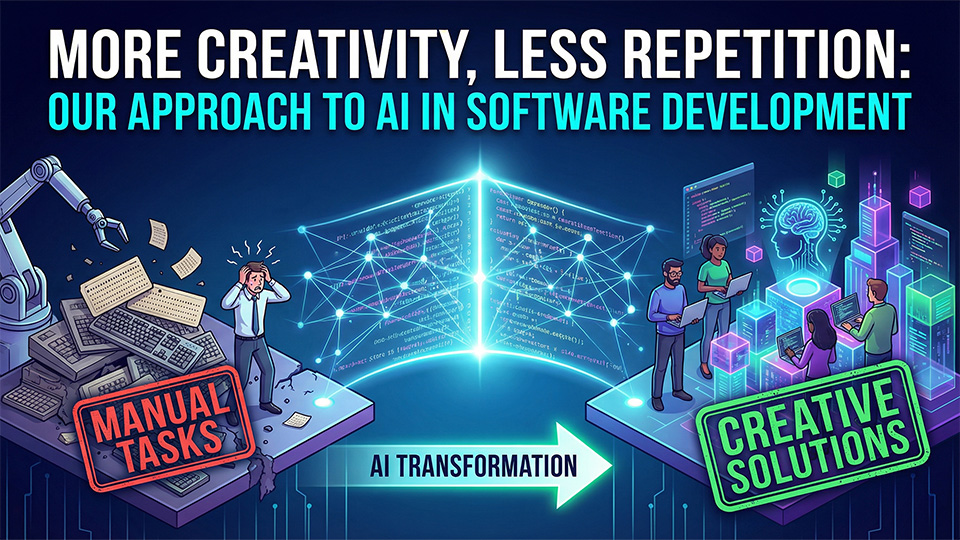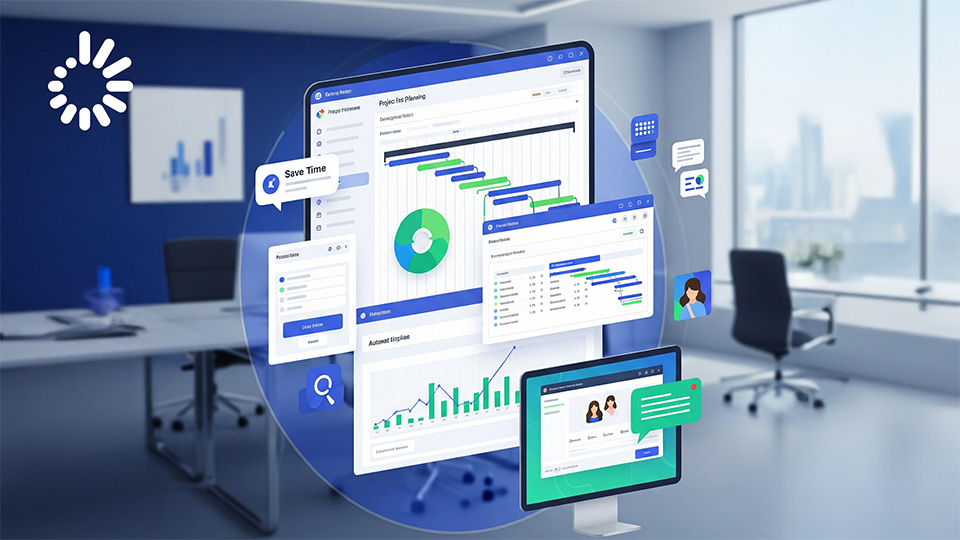June 27, 2023
The Importance of Software in Electric Vehicles
The electric vehicle (EV) market is experiencing rapid growth, with plug-in vehicle sales accounting for nearly 14% of all new car sales in March 2021. The year 2022 witnessed a remarkable surge in the adoption of all-electric vehicles in the United States, with over 750,000 new registrations recorded. This marked a substantial 57 percent increase compared to the previous year and accounted for 5.6% of the total market share.
As the demand for EVs continues to rise, the need for innovative EV software becomes increasingly critical in addressing the challenges faced by EV drivers. But what specific software is required in electric vehicles, why is it essential, and how does it contribute to their overall functionality?
Definition of Software in the EV Context
In the simplest terms, software is a collection of instructions that tells a computer what to do. It's the digital brain that enables computers to perform a wide range of tasks.
In the contexcon EVs, software plays a pivotal role, transforming them from mere machines to intelligent, adaptable systems. Unlike traditional gasoline-powered vehicles, which rely heavily on mechanical components, EVs are powered by electricity and controlled by sophisticated software.
This software-centric approach offers several advantages:
- Over-the-Air Updates: Software updates can be delivered wirelessly, allowing for continuous improvement and the introduction of new features without requiring physical modifications to the vehicle.
- Enhanced Vehicle Performance: Software algorithms optimize various aspects of EV performance, such as energy efficiency, range, and acceleration.
- Advanced Driver Assistance Systems: Software enables cutting-edge features like adaptive cruise control, automatic emergency braking, and lane-keeping assist, enhancing safety and convenience.
- Data-Driven Insights: EVs generate vast amounts of data, which can be analyzed to improve future vehicle designs, optimize battery performance, and enhance the overall user experience.
By leveraging software, electric vehicles are poised to revolutionize the automotive industry, offering a more sustainable, efficient, and enjoyable driving experience.
What is the role played by software in EV?
The software holds a pivotal role in electric vehicles, serving as the backbone for their operation. In the absence of complex mechanical systems or traditional engines, the software assumes responsibility for managing and operating the vehicle. Computing becomes the heart of electric vehicles, playing an integral part in their functioning.
Moreover, the data collected by EVs can be utilized by software developers to evaluate vehicle performance, identify areas for improvement, and enhance future electric vehicle designs.
What kind of software can you find in EV?
While the software requirements for EVs may evolve as the market develops, there are several primary types of software currently employed in electric vehicles. These software applications encompass vehicle control and management systems, as well as address the disadvantages commonly experienced by EV drivers.
- Car Design Software, which is instrumental in overseeing the performance of the vehicle, ensuring proper functionality. It manages and controls essential components such as the battery, electric motors, brakes, lights, and internal entertainment systems, including heated seats.
- Maintenance Software, which, as with traditional gasoline-powered vehicles, is essential for EVs. Given the reliance on software for vehicle management, specific maintenance, and predictive software can notify the driver about the vehicle's safety status and when maintenance servicing is required, particularly for the battery and its management system.
- Monitoring Software: continuously monitors the EV for any issues, notifying the driver promptly. This software aids in the identification of potential problems and can alert the driver if certain components need inspection or if a software update is necessary.
- Navigation Software: plays a crucial role in EVs, offering features like journey route identification, charging point locations, and calculating optimal routes based on the vehicle's current battery charge. This functionality helps alleviate "charging anxiety" often experienced by EV drivers during long journeys.

Specialized and Emerging Software Features for EVs
As electric vehicles continue to gain traction, the role of specialized software in enhancing their functionality and user experience becomes increasingly significant. Here are some key software features that are shaping the future of electric mobility:
Fleet Management Software
For businesses operating EV fleets, efficient management is crucial. Fleet management software offers a range of tools to streamline operations, including:
- Usage Tracking: Monitor vehicle usage patterns, including mileage, charging habits, and driver behavior.
- Performance Metrics: Analyze performance data to identify areas for improvement, such as energy efficiency and maintenance needs.
- Compliance Management: Ensure adherence to regulatory requirements and optimize charging schedules to minimize costs.
For example, Samsara offers real-time GPS tracking, vehicle maintenance scheduling, and driver behavior monitoring, making it ideal for businesses looking to optimize their EV fleet operations.

Security and Anti-Theft Features
The security of electric vehicles is a top priority. Advanced software solutions can provide robust protection against theft and unauthorized access:
- Geo-fencing: Set virtual boundaries for the vehicle and receive alerts if it leaves a designated area.
- Remote Access: Monitor and control vehicle functions remotely, such as locking doors, activating alarms, and tracking location.
- Advanced Security Alarms: Implement sophisticated security systems that detect and respond to potential threats, such as unauthorized entry attempts.
The most prominent names in this area are the Tesla App and Rivian which provide real-time vehicle status updates and allows owners to control various functions remotely.
Energy Optimization and Battery Health Tools
Maximizing battery life and optimizing energy usage is essential for EV owners. Specialized software can help:
- Battery Health Monitoring: Track battery health and identify potential issues early on.
- Energy Management Strategies: Optimize charging schedules and driving habits to conserve energy and extend battery life.
- Predictive Maintenance: Use data analytics to predict potential maintenance needs and schedule timely service appointments.
According to a survey most concerns about purchasing electric vehicles revolve around charging; therefore, this can be considered the most important features for attracting new customers.

Both Tesla and Ford are known for offering excellent energy efficiency features in their mobile applications which help explain their share in the EV market.
Interoperability Solutions
As the EV ecosystem expands, interoperability between different charging networks becomes crucial. Interoperability solutions, such as the Open Charging Network (OCN), aim to simplify the charging experience for EV drivers:
- Seamless Charging: Access a wide range of charging stations across different networks using a single account.
- Simplified Payment Processes: Streamline payment transactions and avoid the hassle of multiple accounts.
- Enhanced User Experience: Provide a consistent and convenient charging experience, regardless of location.
Chargepoint and Electrify America are too notable names when it comes to EV interoperability. Check out more details about them in our newest article about the best EV apps on the market!
Key Technical Challenges in EV Software Development
With the evolution of electric vehicles to match the needs of the growing demand, the underlying software systems that power them are becoming increasingly complex. To ensure the safety, reliability, and security of EVs, developers must address a range of technical challenges.
Regulatory and Compliance Standards
The automotive industry is heavily regulated, and EVs are no exception. Adhering to stringent safety standards like ISO 26262 and AUTOSAR is crucial.
These standards outline rigorous requirements for software development, testing, and validation, ensuring the functional safety and reliability of EV systems.
While serving as a useful guideline, they can also limit the capabilities of EV engineers and create more compliance hassles.
Reliability Testing and Validation
Given the critical role of software in EV operations, extensive testing is essential to identify and rectify potential issues. Rigorous testing methodologies, including unit testing, integration testing, and system testing, are employed to ensure software robustness.
Additionally, simulation tools are used to simulate real-world scenarios and evaluate software performance under various conditions.
Choosing the Right Tech Stack
The selection of appropriate programming languages and frameworks is a critical decision in EV software development. Common tech stacks include:
- Python: A versatile language well-suited for rapid prototyping, data analysis, and machine learning applications.
- Golang: A modern language known for its efficiency, concurrency, and reliability, making it ideal for systems programming and backend services.
- C++: A powerful language for performance-critical applications, often used for low-level system programming and real-time control.
The choice of tech stack depends on factors like the specific software component, performance requirements, and development team expertise.
Cybersecurity Measures
As EVs become increasingly connected, they are exposed to a growing range of cyber threats. To mitigate these risks, robust cybersecurity measures are essential:
- Secure Coding Practices: Adhering to secure coding principles, such as input validation, output encoding, and error handling, can significantly reduce vulnerabilities.
- Network Security: Implementing strong network security measures, including firewalls, intrusion detection systems, and encryption, is crucial to protect against unauthorized access.
- Over-the-Air Updates: Regular software updates can address security vulnerabilities promptly, ensuring the ongoing protection of the vehicle.
By addressing these technical challenges, developers can contribute to the development of safe, reliable, and secure electric vehicles that drive the future of sustainable transportation.
The Future of EV Software
Looking ahead, the future of EV software is poised to play an even more significant role. With the continuous growth of the EV market and the commitment of the EU and US federal agencies to achieve carbon neutrality by 2050, including a ban on combustion engines by 2035, the demand for electric vehicle software is expected to skyrocket.
EV drivers will increasingly demand smoother and more user-friendly experiences, prompting the development of software solutions that address current challenges and perceived disadvantages of electric vehicles. Similar to other technology trends, there will be an expectation for connected and integrated experiences with smart features, aimed at improving passenger safety, minimizing environmental impact, enabling wireless charging, and facilitating remote diagnostics and maintenance.
Conclusion
In conclusion, the importance of software in electric vehicles cannot be overstated. As the EV market continues to grow and transform, Dirox is dedicated to pushing the boundaries of innovation, leveraging software technology to optimize vehicle performance, address challenges, and drive the future of electric mobility.
Through our involvement in the EV software sector, we aim to contribute to seamless and sustainable transportation experiences for both drivers and passengers, unlocking the full potential of electric vehicles.
Seeking support for your EV project? Trust the expertise of Dirox's skilled professionals to handle the development of your EV software. Contact Dirox and watch your project thrive and succeed.






























.svg)













